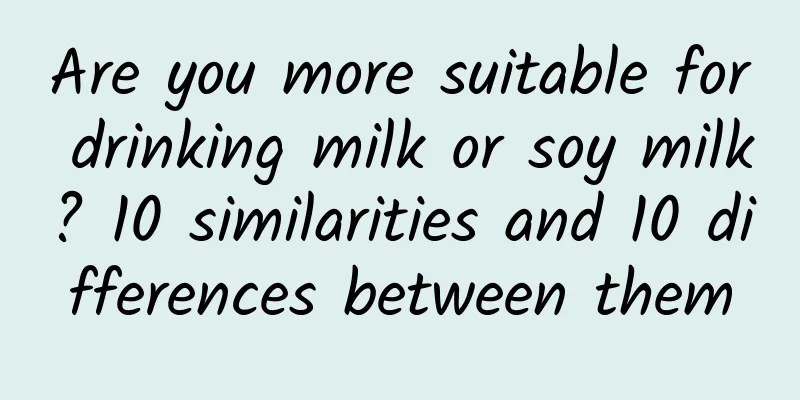If you eat too much salt, there are several signs that your body is choking, not just wanting to drink water!

|
Mr. Yang, 47 years old, developed weakness in the right limbs after being emotionally excited 3 hours before admission, accompanied by speech disorders. He could not lift his upper limbs and could not walk with his lower limbs. He could speak complete sentences and understand what others asked, but his speech was unclear, accompanied by headaches, nausea and vomiting, and vomited twice, with the vomitus being gastric contents. The symptoms were persistent and gradually worsened. When Mr. Yang's family discovered his abnormality, they became very nervous and hurriedly drove him to the hospital for emergency treatment. The doctor immediately performed a head CT scan on Mr. Yang, the results of which indicated basal ganglia cerebral hemorrhage . The doctor advised him to stay in bed and avoid emotional excitement, and recommended hospitalization for treatment. Mr. Yang and his family agreed. After admission, the doctor examined him and found: conscious, clumsy speech, normal memory, body temperature: 37.5℃, blood pressure: 190/100mmHg, heart rate: 86 times/min, respiration: 17 times/min, right limb muscle strength level 2+. He was immediately given central oxygen inhalation, ECG, blood pressure and blood oxygen saturation monitoring, and completed blood tests such as lung CT, blood routine, coagulation, and biochemical series. When inquiring about his medical history, we learned that Mr. Yang had a history of persistent hypertension, with blood pressure as high as 200/120 mmHg. However , he did not take oral antihypertensive drugs regularly, did not control his diet much, and tended to have heavy tastes. Based on the examination results, the doctor developed a treatment method for Mr. Yang, giving him dehydration, intracranial pressure reduction, brain protection, blood pressure reduction, hemostasis, and anti-inflammatory medication. After treatment, the amount of Mr. Yang's cerebral hemorrhage did not increase, his limb weakness and speech disorders were alleviated, and his condition stabilized. Doctors remind that hypertensive cerebral hemorrhage often occurs in the basal ganglia, putamen, etc. This area is supplied by the lenticulostriate artery, a deep perforating branch of the middle cerebral artery, and its outer side is most prone to rupture and bleeding. Hypertensive cerebral hemorrhage is prone to recurrence. The main preventive measure is to actively control blood pressure. Patients should avoid emotional excitement, strenuous exercise, staying up late and overwork in daily life. The diet should be light, low in salt and fat, and eat more easily digestible foods. As the saying goes, there is no taste without salt. Salt is one of the most indispensable condiments in our lives and is also known as the "king of all flavors." Without salt, even the best chefs will find it difficult to make delicious dishes. However, as modern cuisine becomes more and more diverse, people may consume too much salt without realizing it. According to the "Dietary Guidelines for Chinese Residents", the daily salt intake per person should not exceed 5g . However, data shows that the average daily salt intake of adults in China is 14.5g, which is far higher than the standard value. 1. The harm of excessive salt intake is not just high blood pressure 01Not conducive to cardiovascular and cerebrovascular health A large number of studies have also shown that eating too much salt will increase the risk of high blood pressure , while eating less salt can lower blood pressure levels in people with normal blood pressure and most patients with hypertension. Other studies suggest that a long-term high-sodium diet is associated with impaired endothelial function. High blood pressure will accelerate vascular aging and increase the risk of stroke. 02More prone to fractures A high-salt diet will lead to high sodium intake, which will inhibit the differentiation and function of osteoblasts , thereby reducing bone density and bone strength and increasing the risk of fractures. In addition, if you eat too much high-salt food, there will be too much competition between sodium ions and calcium ions in the reabsorption process of the renal tubules, increasing urinary calcium excretion, and sodium salt stimulating the human parathyroid glands, increasing the secretion of parathyroid hormone . These reasons can lead to increased bone damage, making osteoporosis and even fractures more likely to occur. 03Increased risk of gastritis The American Cancer Society conducted an 11-year survey on 40,000 middle-aged people aged around 40 to 59 and found that some patients consumed more salt, which may increase the incidence of stomach disease or stomach cancer. Excessive salt intake will irritate the gastric mucosa and may cause the gastric parietal cells to fall off . The parietal cells are a barrier that protects the health of the stomach. Once they are destroyed, the risk of gastritis will increase , and in severe cases, it may lead to gastric cancer. 04High risk of chronic kidney disease An American study recently published in a journal of the Journal of the American Medical Association showed that the more salt in the diet, the higher the risk of chronic kidney disease. Excessive salt intake can lead to high levels of urine protein, and persistently high levels of urine protein is a major risk factor for kidney disease . A high-salt diet increases the risk of kidney stones . In addition, high salt intake can promote renal sclerosis and fibrosis , while the enhanced oxidative stress caused by high salt can lead to renal failure and renal structural remodeling. 05Affects cognitive ability Long-term high salt intake can cause oxidative stress in the hippocampus, thereby impairing memory, especially for the elderly . Studies have found that consuming more than 5,593 mg of sodium (about 14 grams of salt) per day increases the risk of memory loss by 1.5 times . 2 If you have these 5 signs in your body, it means you may have eaten too much salt 1. Dry mouth and thirst: Excessive salt intake will lead to excessive extracellular sodium concentration, causing the body to be in a state of high osmotic pressure, which in turn stimulates the central nervous system and causes thirst . This can manifest as obvious dry mouth, which is relatively obvious at night, and you will always want to drink more water. 2. Dizziness and headache: If you eat too much salt for a long time, it will have a certain impact on the blood vessels, leading to increased resistance around the blood vessels, which can easily induce high blood pressure , causing symptoms such as headaches and head swelling . 3. Body edema: Eating too much salt and not excreting it in time will affect the osmotic pressure balance, increase the burden on the kidneys, reduce the kidney's drainage capacity, and cause water and sodium retention, which is often manifested as edema in the face, upper limbs, lower limbs and other parts of the body. 4. Always wanting to urinate: Excessive salt intake will cause dry mouth. You may consume more water and may have polyuria , which can lead to increased urination at night and poor rest at night. 5. Slower reaction : Eating too much salt can cause dehydration , and dehydration can cause a sudden drop in a person's ability to think clearly. A study published in the "Journal of Nutrition" showed that compared with when there is sufficient water in the body, mild dehydration can cause women to perform worse in cognitive function tests that measure attention, memory, reasoning ability and reaction time. 3How to prevent excessive salt intake? 4 ways to help you control salt 01Correct your eating habits Many people are accustomed to eating heavy-tasting food, and healthy eating should start with correcting such habits. Control the total amount of salt intake every day, use a quantitative salt spoon, or measure out with a measuring tool, and put the corresponding amount into dishes at each meal. Try not to eat pickles or fermented bean curd for breakfast. A 4cm square piece of fermented bean curd contains 5g of salt. Try to avoid eating high-salt foods and condiments, such as mustard, yellow paste, pickled vegetables, pickled meat, hot sauce, etc. In normal times , potassium-rich, low-sodium salt can be used instead of ordinary table salt, but it should be used with caution in patients with renal insufficiency to prevent increased blood potassium. 02 Add salt at the end Do not add salt too early when cooking dishes. Add salt just before serving. This way you can reduce the amount of salt while maintaining the same saltiness. Especially for stewed dishes, the amount of salt should be controlled well and the soup should be kept light as much as possible. 03Use natural seasonings When cooking, use more vinegar, lemon juice, spices, onions, ginger, garlic and other seasonings to replace part of the salt and soy sauce . You can also use tomatoes, green peppers, onions and other flavorful ingredients to cook with light dishes to achieve a coordinated effect. You can also choose to use more cooking methods such as steaming, baking, and boiling to enjoy the natural taste of food. For non-diabetic hypertensive patients, sweet and sour seasoning can be used to reduce the need for salty taste. 04Beware of invisible salt Foods such as concentrated soups, hot pot bases, and processed meats contain high salt content , and if you are not careful, it is easy to exceed the salt intake limit. When purchasing such products, pay attention to the sodium salt content in the ingredient list, and control the salt content of other foods on the day as appropriate to avoid exceeding the standard. In addition, salt is added for seasoning or pickling during the production process of various finished beverages, dried fruits, pastries, ice cream, etc. , which can easily lead to excessive salt intake if we are not careful, so we must pay attention to identification and try to buy and eat less. |
>>: Earth Hour: If you want to make the earth "easier", you can do these things →
Recommend
Iceland: Less ice, half of the volcano without sugar
The other side of Eurasia In the cold wind of the...
Toutiao Advertising Manual, let your information flow ads be on the "headlines"!
Recently, CB Insights, a well-known American vent...
Tesla chairman talks about Musk: I don't think he faces any challenges
Last fall, the Securities and Exchange Commission...
After taking over the channel for 5 months, I figured out all the free promotion routines in the Android market...
The matter began with a platform turnover statist...
The more you scratch, the more itchy it gets! How to treat itchy skin? There are some tips in life and diet
Author: Chen Yong, Chief Physician, Beijing Chaoy...
XGIMI Z4 Air smart micro-projector review: a great sharing tool you can carry with you
Smart micro projectors, to some extent, are a sub...
Tencent, NetEase, Sohu, Toutiao, the current four major news and information apps competitive analysis
At present, there are many news clients on the ma...
Motorola may release Moto 360 smartwatch on September 4
On the morning of August 15, the American technol...
"Watching the Sea" During the Flood Season, Learn About Scientific Flood Control
Every summer, when the flood season arrives, cont...
A famous female star revealed that she has "calcification". This phenomenon occurs to many people! Learn how to deal with and prevent it in one article
Recently, the topic of a famous female star's...
From King of Glory, I summarized the three major operating magic weapons of Tencent Games
Two things happened recently. First, more than ha...
Dry and cold in the north VS wet and cold in the south, which one is colder?
Mixed Knowledge Specially designed to cure confus...
Build a healthy body, Liu Mengyi, three consecutive world champions, "Seven Muscle Group Training Sculpting"
Building a healthy body, Liu Mengyi, three consec...
Introduction to CPT advertising promotion in 360 Search Brand Center!
360 Brand Center Introduction to the advantages o...
Are ketogenic diets, intermittent fasting, probiotics, and fecal microbiota transplants effective?
The more fat you are, the more health risks you w...









